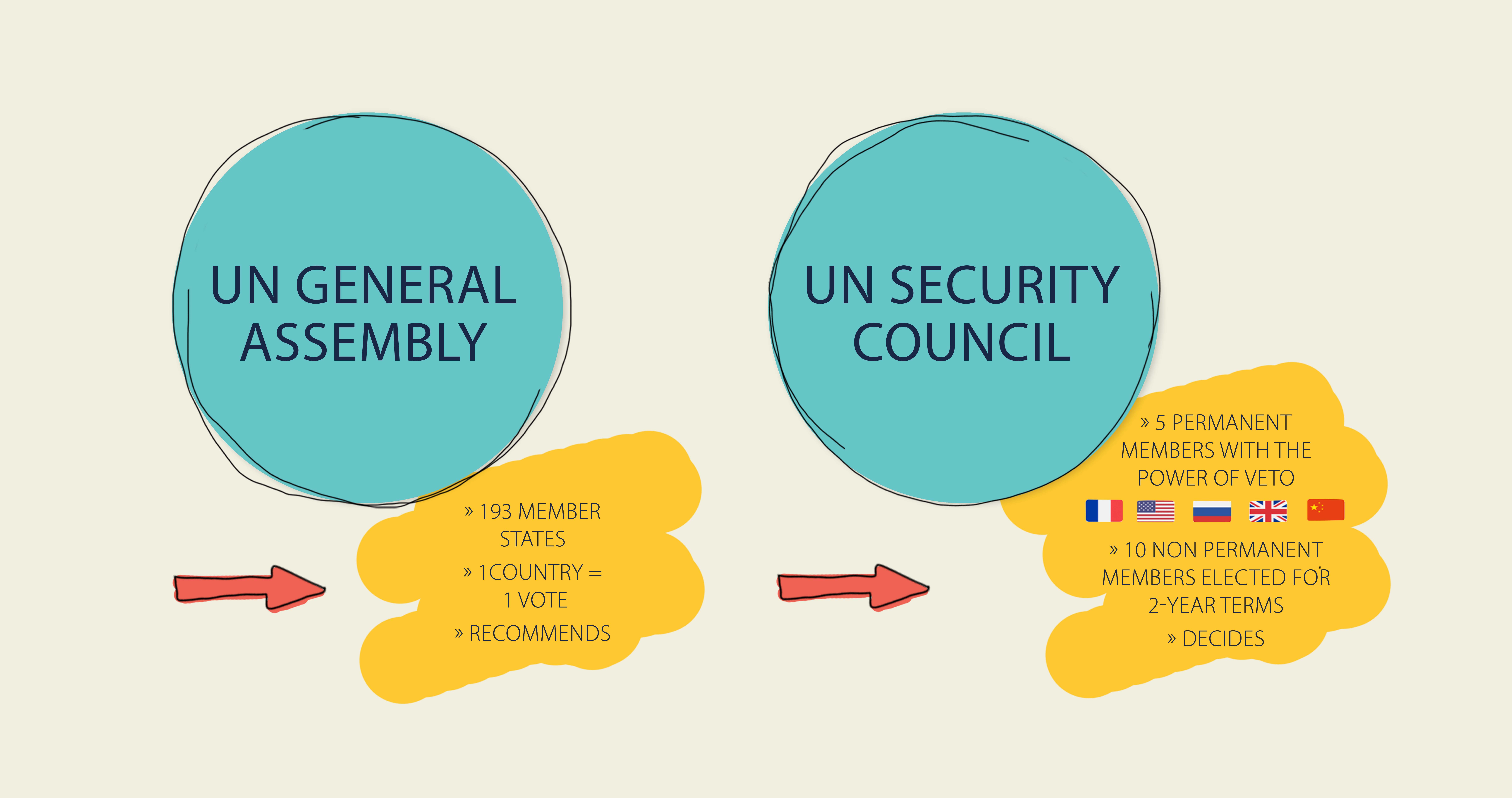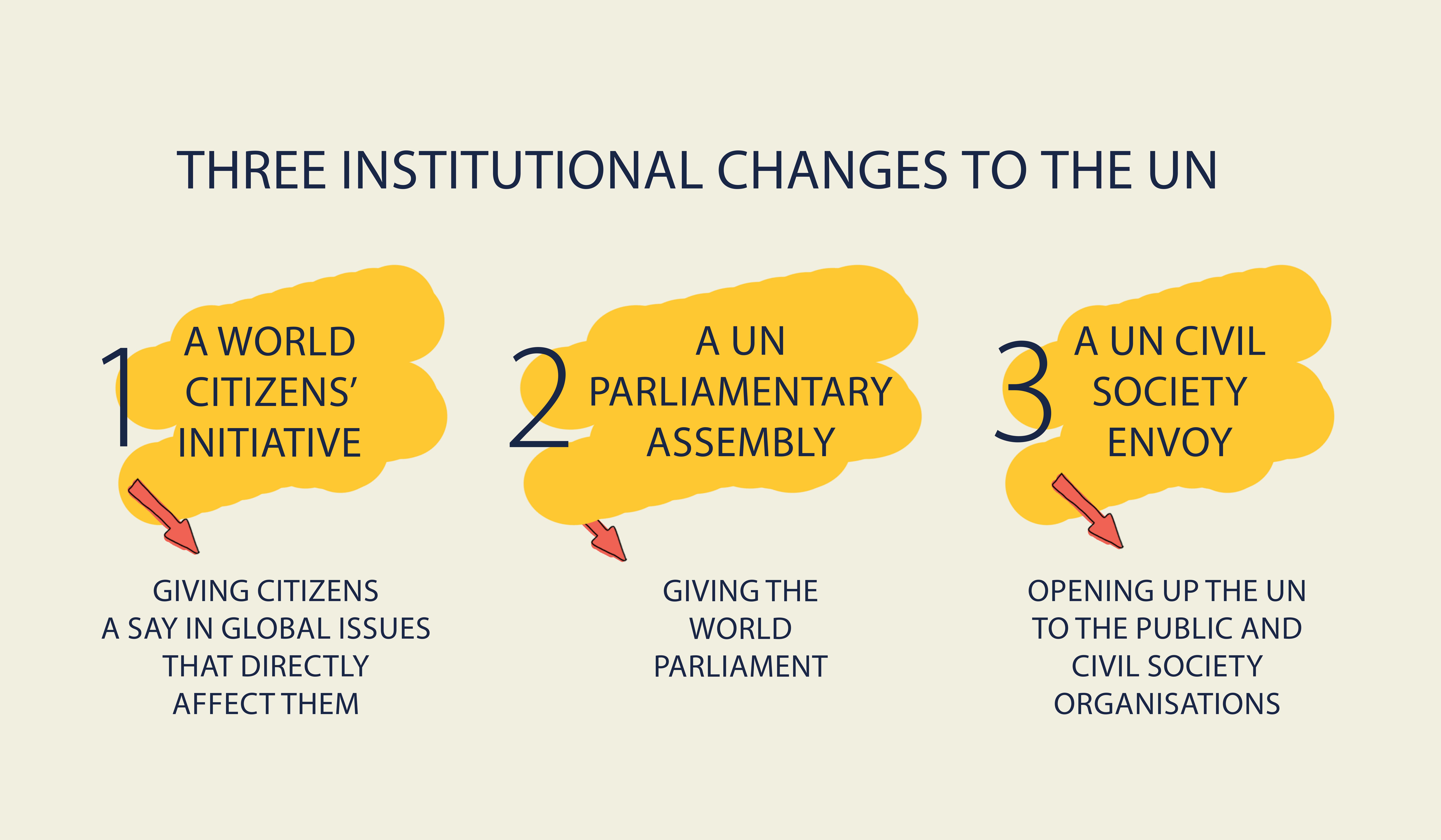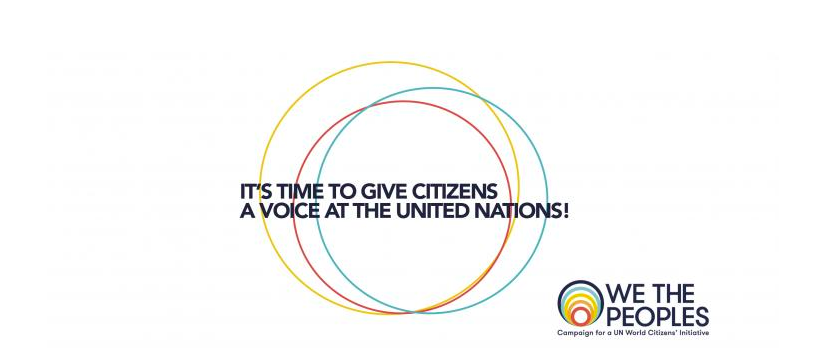Nowadays we are more interconnected than ever in human history. We face global challenges, such as climate change, which are the result of human activity, transcend national boundaries and cannot be solved by a single government. Therefore, solving such problems requires deliberation and coordination on the international level. However, intergovernmental organizations are insufficient to effectively and efficiently solve global challenges alone, because countries can sometimes put their national interests above the common good. There are few opportunities for citizens to express their opinions at the United Nations (UN), which is the most vital arena of global politics. Moreover, international forums for deliberation are largely guided by government representatives, which undermines the principle for democratic representation at the global level. Civil society participation at the UN’s decision-making forums is limited and civil society organizations are not equally represented. It is time to change that and give citizens a voice at the global level!
We The Peoples Campaign: A call for inclusive global governance
“We the Peoples” is an international campaign of civil society organizations and citizens that calls for a more inclusive and democratic global governance. It is a joint initiative between CIVICUS: World Alliance for Citizen Participation, Democracy International and Democracy Without Borders. All of which are dedicated to citizen participation, democracy and civic rights! The campaign aims to improve the UN’s decision-making system, making it more legitimate and transparent by introducing three reforms: a UN World Citizens' Initiative, a UN Parliamentary Assembly and a UN Civil Society Envoy.
To learn more about how the initiative can be implemented, you can read the campaign’s academic report here
To show your support, you can sign on to the joint civil society statement on inclusive global governance here
Supporters
Over 300 civil society organizations have already joined the call for a UN World Citizens’ Initiative. Their work focuses on issues ranging from climate change to promoting peace.

Why is now the right time for a change?
We are not alone in thinking that the UN needs an urgent update. The UN Secretary-General António Guterres perceived the UN’s 75th anniversary in 2020 as a chance for the Organisation to hear directly from the people it serves. During this time the UN-General Assembly gave general Guterres the task to produce a report which would help the Organization follow its goal of becoming more committed to democracy and human rights. In January 2020, the UN established a year-long round of discussions with a total of over 1.5 million citizens in over 195 countries. The goal was to find out how people around the world see the UN, what role it should take on in the future and what are their expectations and prime concerns in a global aspect. An astounding 97% of the participants said that they think the work of the UN is important and necessary, but 40% also said that it is very remote from their lives. A UN World Citizens’ Initiative and a UN Parliamentary Assembly were proposed solutions for dealing with the UN’s democratic deficit and upgrading its’ system.
You can read the full UN75 report here
From the UN75 to the UN General Assembly 2021: Progress

The results of these consultations were a wake-up call for UN member states and they decided to launch a real reform process. They tasked Secretary General Guterres with drafting a roadmap for the future of the UN ahead of the General Assembly in September 2021. One of the main elements he had to investigate was how the UN itself could be upgraded. To collect ideas from citizens and civil society, he launched an online consultation where people could propose solutions and vote for the ideas of others. The UN World Citizens’ Initiative was the second-most voted for on the platform! In Our Common Agenda, the report of the UN Secretary-General Guterres, he highlighted that civil society should be included directly in the UN system. This will ensure that the UN builds on recent innovations in listening to, consulting and engaging with people around the world. To achieve the goals that Secretary General Guterres set in his report, he recommends a Summit of the Future where global consensus can be reached about how our common future would look like.
The UN's democratic deficit
The UN Charter, which is the Organization’s foundational treaty, opens with the statement “We the peoples of the United Nations determined...” However, in reality, the UN is an exclusive club of appointed government diplomats. The Security Council decides on matters of international peace and security and the General Assembly makes recommendations, launches treaty negotiations, or is engaged in international agenda-setting.

The UN has tried to address issues of legitimacy and accountability by including relevant groups, such as civil society organizations, in some of its deliberations. Nevertheless, these efforts are still underdeveloped as there are no means for ordinary citizens to make an influence. There are three main ways in which the UN decision-making system can be transformed to incorporate citizens’ voices in the UN activities. Firstly, a UN World Citizens’ Initiative (UNWCI) would give citizens a say in global issues that directly affect them and would establish a citizen-based global political sphere. Secondly, a UN Parliamentary Assembly (UNPA), serving as a second chamber in the UN system, would directly represent the people. Lastly, a UN Civil Society Envoy would create a forum of civil society organizations and encourage extensive involvement of the public and civil society organizations. These three mechanisms would ensure that the UN decision-making system becomes open and transparent and that UN policies pursue the general interest of citizens.




